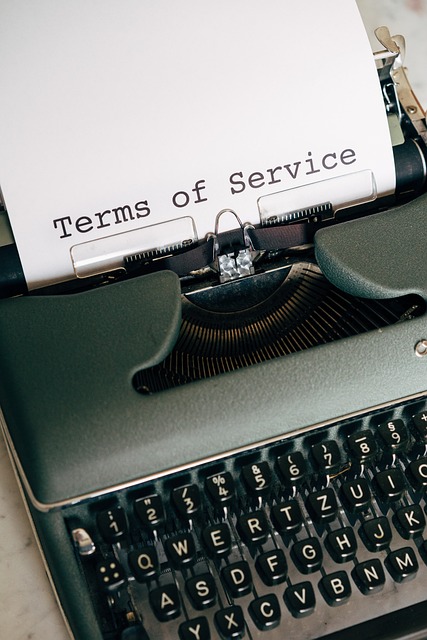Optimizing UK Technical Guidelines: Localization, Translation, and Business Success
In the diverse UK market, localized technical guidelines are essential for effective communication and regulatory compliance across sectors. Professional translation services play a vital role in ensuring these guidelines are accessible, accurate, an…….

In the diverse UK market, localized technical guidelines are essential for effective communication and regulatory compliance across sectors. Professional translation services play a vital role in ensuring these guidelines are accessible, accurate, and tailored to local needs, fostering inclusivity, adhering to regulations, and enhancing operational efficiency. Overcoming challenges like linguistic accuracy, keeping up with technological advancements, and integrating user feedback is crucial for successful localization. These services bridge international standards and local implementations, enabling professionals to interpret and adhere to guidelines efficiently. Regular reviews, updates, and collaboration ensure the continued relevance and effectiveness of UK technical guidelines, while case studies highlight the transformative power of culturally sensitive communication in driving global business growth.
Are your UK guidelines truly fit for purpose? In today’s globalised market, well-structured, localised technical documentation is essential for any business aiming to thrive in the UK. This article explores the critical role of localisation in ensuring your guidelines meet legal requirements while resonating with British audiences. From overcoming common challenges to leveraging professional translation services and maintaining accuracy, discover strategies for creating effective UK technical guidelines that drive business success. Learn from real-world case studies and unlock the benefits of localised standards.
- Understanding the Importance of Localized Guidelines in the UK
- Common Challenges in UK Technical Documentation
- The Role of Professional Translation Services
- Ensuring Accuracy and Consistency in Translations
- Adhering to Cultural Nuances and Legal Requirements
- Benefits of Localized Standards for Business Operations
- Case Studies: Successful Localization Projects
- Strategies for Continuous Improvement and Maintenance
Understanding the Importance of Localized Guidelines in the UK

In the diverse landscape of the United Kingdom, where multiple languages are spoken and a rich cultural tapestry weaves through its regions, having well-structured and localized guidelines is paramount. Localized guidelines play a pivotal role in ensuring effective communication, compliance, and understanding across various sectors, especially in technical fields. When it comes to UK technical guidelines and standards, translation services become indispensable tools to bridge the gap between national policies and local practices.
Accurate and culturally sensitive translations are essential to guarantee that guidelines intended for specific industries or regions are accessible and applicable to all stakeholders. Localized content ensures that technical instructions, safety protocols, and quality standards resonate with the unique needs and challenges faced by UK businesses and professionals. This approach fosters a more inclusive environment, promotes adherence to regulations, and ultimately enhances the overall efficiency of operations within the diverse UK market.
Common Challenges in UK Technical Documentation

The process of creating and maintaining well-structured, localized technical guidelines in the UK can be fraught with challenges. One of the primary hurdles is ensuring consistency across various regions and languages while adhering to evolving industry standards. With a diverse linguistic landscape within the UK itself, including English as the dominant language but also Scottish Gaelic, Welsh, and Northern Irish dialects, translation accuracy becomes paramount. Misinterpretations or literal translations can lead to confusion among users, impacting the overall effectiveness of the guidelines.
Additionally, staying up-to-date with rapid technological advancements presents a constant challenge. Technical documentation must evolve alongside innovations, requiring frequent revisions to reflect current practices. Moreover, integrating feedback from diverse user groups and subject matter experts is essential for creating comprehensive yet accessible content. The demand for professional translation services that specialize in UK Technical Guidelines and Standards has never been higher, as organizations strive to overcome these challenges and deliver clear, consistent documentation tailored to their local audiences.
The Role of Professional Translation Services

In today’s globalized world, ensuring that technical guidelines and standards are accessible and understandable across diverse linguistic landscapes is paramount. This is where professional translation services play a pivotal role for the UK. These services aren’t merely about converting words from one language to another; they involve specialized knowledge and expertise to accurately convey complex technical information. Professional translators with industry-specific training and native-level proficiency in both source and target languages are essential to maintaining the integrity of guidelines while adapting them to meet local requirements, regulations, and cultural nuances.
Translation services for UK Technical Guidelines and Standards serve as a bridge between international best practices and local implementation. They help to harmonize knowledge transfer, ensuring that industry professionals, regulators, and stakeholders can seamlessly interpret and apply these guidelines within the UK context. This localization process not only enhances understanding but also facilitates faster adoption and adherence, ultimately contributing to a more efficient and standardized technical landscape across the country.
Ensuring Accuracy and Consistency in Translations

Ensuring accuracy and consistency in translations is paramount when it comes to UK technical guidelines and standards. When localizing such documents, language professionals must pay meticulous attention to detail to convey the intended meaning precisely. This involves not just translating words but also understanding cultural nuances, terminological context, and any specialized terminology unique to the industry or sector in question.
Translation services for UK technical guidelines should employ qualified linguists who are native speakers of the target languages. They should also utilize advanced translation memory tools and glossaries to maintain consistency across documents and projects. By adhering to these practices, translations can be relied upon to accurately reflect the original content, fostering trust and confidence among users who rely on these guidelines for their work.
Adhering to Cultural Nuances and Legal Requirements

When localizing technical guidelines and standards for the UK market, it’s crucial to go beyond simple translation. While linguistic accuracy is paramount, understanding and adhering to cultural nuances and legal requirements are essential for effective communication and compliance. Cultural context plays a significant role in how directives are interpreted and applied. Professional translators who specialize in this domain ensure that technical content reflects local customs, idiomatic expressions, and best practices, avoiding potential misunderstandings or misinterpretations.
Additionally, the UK has its own robust legal framework that governs various industries. Localized guidelines must be crafted with a deep knowledge of these regulations to ensure they remain legally sound. Translation services for UK Technical Guidelines and Standards should include thorough research and consultation with experts in relevant fields to guarantee compliance, ensuring your documentation is not only linguistically accurate but also tailored to the specific needs and expectations of the UK audience.
Benefits of Localized Standards for Business Operations

Localizing technical guidelines and standards is a strategic move that brings significant advantages for businesses operating within the UK market. One of the key benefits is enhanced customer satisfaction and loyalty. When standards are tailored to the local context, they ensure products and services meet the specific needs and expectations of British consumers. This level of localization builds trust and fosters a stronger connection between businesses and their target audience, leading to increased brand loyalty.
Furthermore, localized guidelines facilitate efficient business operations. UK-specific technical standards streamline processes by providing clear directions tailored to local practices and regulations. This is especially valuable for international companies expanding into the UK market as it reduces the risk of misunderstandings or legal issues arising from differences in standards. Translation services play a crucial role here, ensuring that all stakeholders have access to the updated, localized guidelines, thereby smoothing the way for successful business integration and growth.
Case Studies: Successful Localization Projects

Successful localization projects within the UK often serve as a testament to the power of tailored, culturally sensitive communication. Case studies highlight the importance of translation services for UK Technical Guidelines and Standards, demonstrating how professional interpreters can transform abstract concepts into accessible resources for diverse audiences.
One notable example involves a leading manufacturing firm aiming to expand its operations across Europe. By engaging specialized translation services, they ensured their technical documentation aligned with regional standards, fostering smoother market entry and enhanced customer trust. This project exemplifies the critical role localization plays in bridging cultural gaps and facilitating global business growth.
Strategies for Continuous Improvement and Maintenance

Maintaining well-structured and localized UK guidelines requires a continuous improvement strategy. One effective approach is to incorporate regular reviews and updates, ensuring that the guidelines remain relevant and aligned with the latest industry standards and best practices. This can be facilitated through collaborative efforts involving subject matter experts, industry stakeholders, and government bodies. By establishing clear feedback loops and adoption of agile methodologies, any outdated or inconsistent information can be swiftly identified and addressed.
Translation services play a vital role in this process by facilitating the localized adaptation of UK guidelines for diverse linguistic audiences. High-quality translation ensures that technical jargon and complex concepts are accurately conveyed, enhancing comprehension and compliance across regions. This is particularly important given the vast range of languages spoken within the UK and the increasing global interconnectedness of industries. Regular translation updates, alongside ongoing maintenance, contribute to the longevity and effectiveness of these guidelines, fostering a dynamic and inclusive environment for all stakeholders.
The UK’s technical guidelines and standards benefit immensely from localized documentation, ensuring clear communication and compliance. By addressing common challenges and leveraging professional translation services, organizations can achieve accuracy, consistency, and cultural relevance. This approach not only enhances operational efficiency but also opens doors to a more inclusive and successful business environment. Translation services play a pivotal role in localizing guidelines, making them accessible and effective across diverse regions within the UK.






